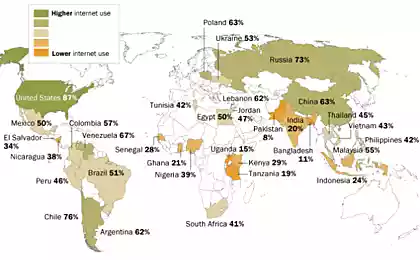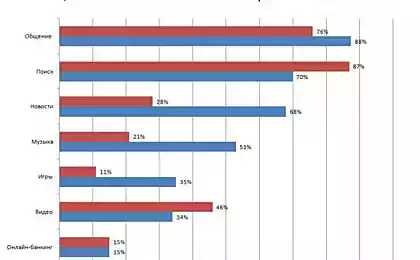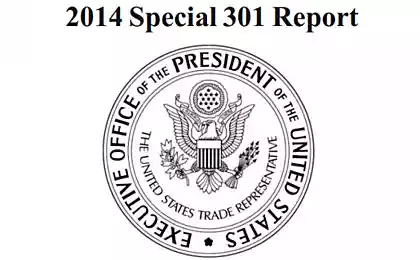587
A report on the online preferences of the inhabitants of Europe in 2014 by Global Web Index
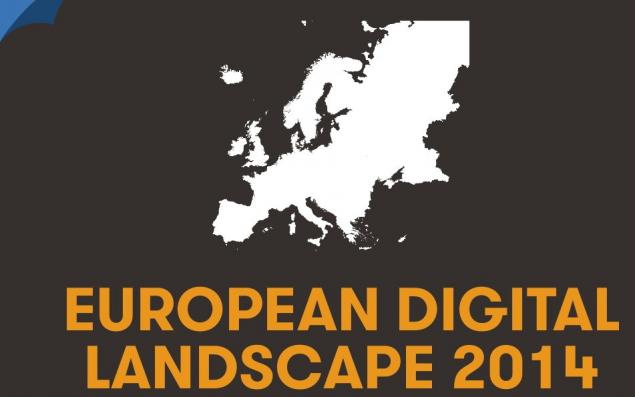
As you know, the world's leading countries in implementing it infrastructure is the United States. It is in North America now has the largest number of data centers, many of which are real giants. At the same time Asia takes a number, thus showing phenomenal growth in the region as the computing capacity of the it infrastructure and the number of network users. What in this context is happening to Europe, rolling on the periphery? Several shed light on this question helped published by the research company Global Web Index statistical report "European digital landscape 2014" (European Digital Landscape 2014). The research covers 40 European countries. Although these studies are fresh, but even during collection it has been noted that they undergo changes in the quantitative and qualitative increase, and this trend is taken into account to maximize correct perception given the results of the study in one of the most developed regions of the world.
Global взгляд
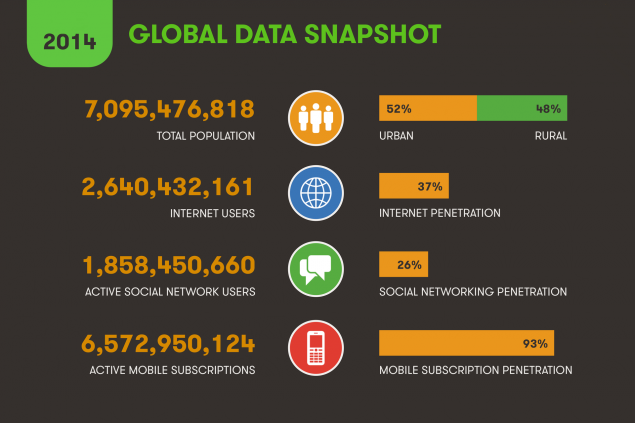
The total number of Internet users is probably the most controversial and the most dynamically changing parameter. According to some estimates the world has currently about 3 billion users, but how this figure is correct, is difficult to argue. At the time of the work in preparing the report, the Global Web Index stood at 2 640 432 161 that percentage is about 37%. Although it is obvious that the absolute figures are rampant, but the percentages do not undergo such substantial changes over short time periods, and the level of confidence in them remains high.
Internet in Европе
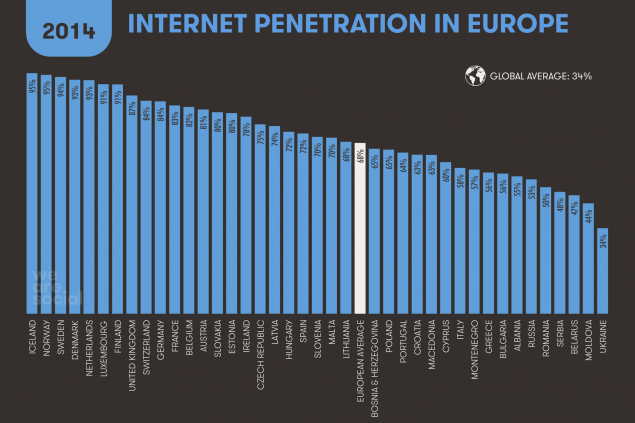
The specificity of the Internet market in Europe is the extremely high percentage of Internet penetration in society. For seven of the leading countries this percentage is generally crossed a phenomenal 90%, which shows us that the bar market saturation, which is quite real. It is obvious that the rest of the civilized world anyway will go forward to this level.
At a time when the average level of Internet penetration in the life of the average resident of Europe was 68%, the greatest growth potential in Europe remains behind its Central and Eastern part. Ukraine, Moldova and Belarus showed the lowest result of the information society.
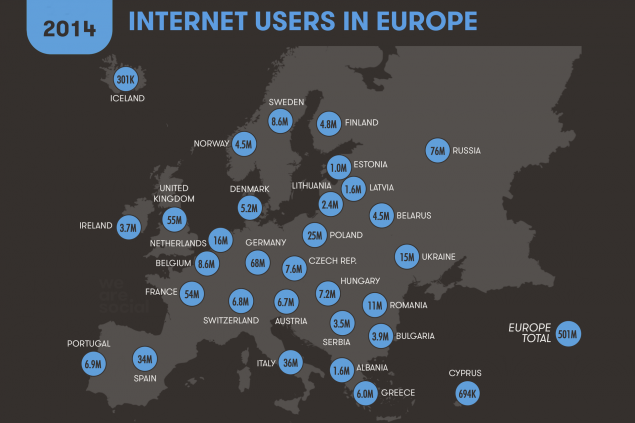
The total number of Internet users in the continent in 2014 amounted to more than half a billion. It is worth noting the fact that Turkey is not taken into account, although de facto it is about 45 million users. While the numbers are impressive, but quantitatively clearly inferior to the Asian region. For comparison, the number of users in one only China has exceeded 600 million.
The Russians and the poles more all are in сети
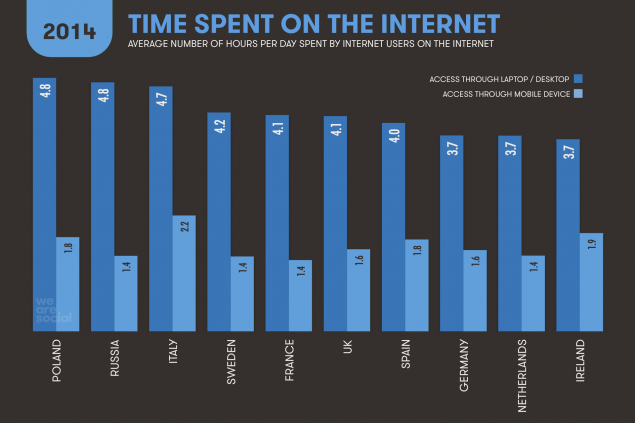
Every day on average, poles spend online 4 hours 50 minutes, the same and the Russians. If only mobile Internet, the leaders in torturing your smartphone were the Italians, through the Internet using their mobile devices for 2 hours and 15 minutes daily.
Social сети
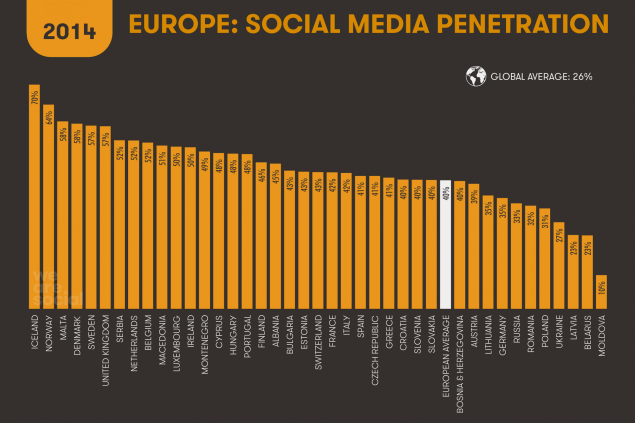
When comes to the question of social networks, clearly shows the division of the preferences of the inhabitants of the continent of Europe into two camps.
Facebook unconditionally dominates in Western Europe, a total of 37 countries in the region, tightening in your network about 232.2 million active users and it accounts for 19% of all users of this social network in the world. And this despite the fact that living in these European countries, only 8% of the population.
Eastern Europe is firmly stuck, of course, in Vkontakte. The greatest number of users in Russia, Ukraine and Belarus. Only in these three named countries, the number of active users amounted to just over 60 million. Facebook is also among the preferences of the inhabitants of those three countries, but the number of active users only at the level of 12.4 million, though it should be noted the tendency to growth of this social network in Eastern Europe.
As leaders of the region in Internet penetration in the society, Iceland was also the leader in penetration in people's homes social. networks. Facebook is popular among 70% of the inhabitants of the island nation.
Malta more diversified with its 58% penetration social. networks in society Scandinavian club, the four countries which entered the top 5 greatest enslavement of social networks. Probably really there is not much fun long Arctic winters.
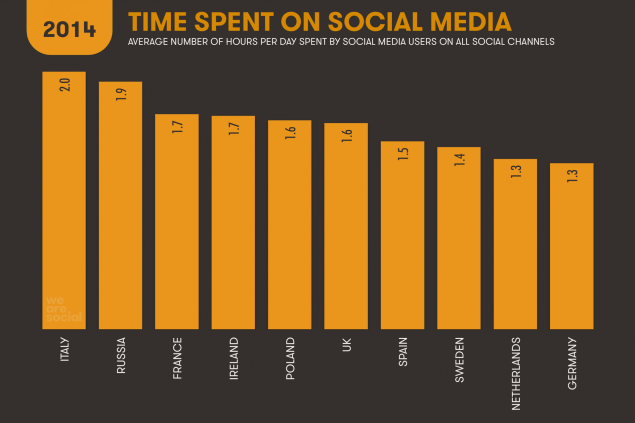
But most lovers speak, as one would expect, were the Italians and the Russians. They spend every day on social networks more than 40% of all time spent online.
Interesting may be the fact that the output of the social network of the inhabitants of Europe in 66% of cases is carried out using the mobile Internet, and this number is gradually increasing.
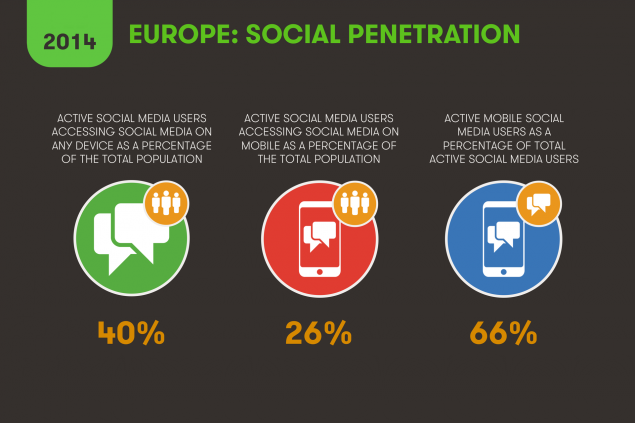
In quantitative terms for the countries of the region leader output in the social.network with mobile devices was the United Kingdom. The study showed that in the country of 30 million users already.
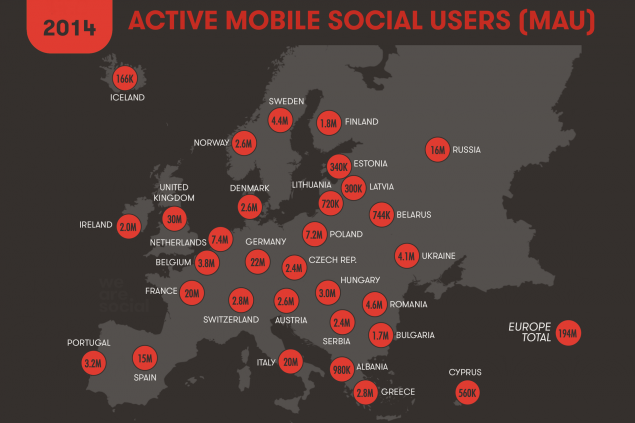
Picture of the sub-regions of Europe
Based on the analysis of the study, staff from Global Web Index found expedient to divide the European continent into sub-regions based on similar preferences, online behaviour and the level of Informatization of the society. The results of this work were completed in 7 parts.
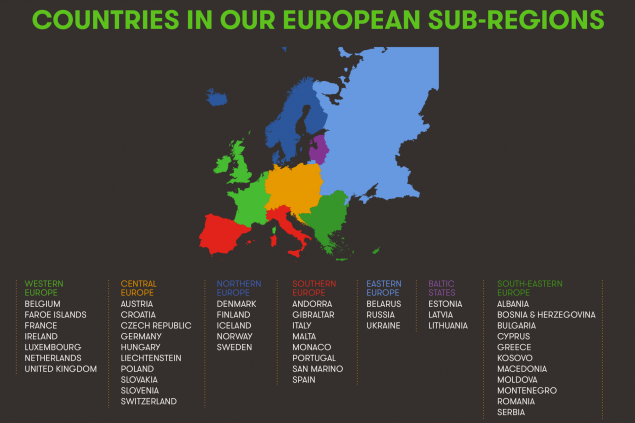
This map can be an important element in understanding the level of information development of countries, identify differences behavior of European citizens online.
Biodistance is an integral part of a proper understanding of the complex multilevel processes. Europe is a densely populated continent with a diverse social landscape, which must be investigated thoroughly. This report can be of interest not only sellers of all kinds of Internet services, but ordinary users of the network based on it can match their preferences with the preferences of people in different countries. The analysis of this report can be important not only for understanding the processes that are experiencing different countries of the continent. Being one of the most developed regions of the world, Europe can be seen as a pioneer in the development of information technology, in the footsteps of which, with some delay, will move to less developed regions of the world.published
P. S. And remember, only by changing their consumption — together we change the world! ©
Source: habrahabr.ru/company/ua-hosting/blog/244515/














